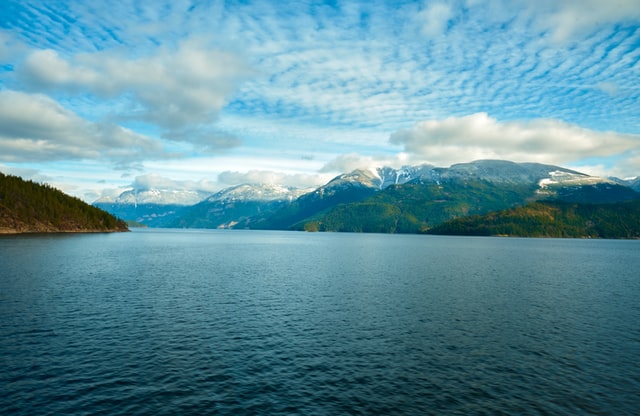Victoria, B.C. – Through the Oceans Protection Plan, the largest investment ever made to protect Canada’s coasts, the Government of Canada is working in partnership with Indigenous coastal communities to improve marine safety for mariners. As part of this plan, in 2017 the Canadian Coast Guard launched the Indigenous Community Boat Volunteer Pilot Program. This program provides Indigenous communities with funding to purchase boats and equipment to build up their on-water search and rescue capabilities. These investments allow Indigenous communities to take concrete steps to strengthen their capacity as part of the Canadian Coast Guard Auxiliary.
Minister of Fisheries, Oceans and the Canadian Coast Guard, the Honourable Bernadette Jordan, and Terry Beech, Parliamentary Secretary to the Minister of Fisheries, Oceans and the Canadian Coast Guard, announced $2 million in funding for 8 Indigenous communities across the country under the fourth year of the program at an event with the Coastal Nations Coast Guard Auxiliary (CNCGA). Three communities who are CNCGA members are receiving funding: Quatsino First Nation, Heiltsuk First Nation and Kitasoo/Xai’sais Nation.With the new equipment and top level training from the Canadian Coast Guard Auxiliary, members are better equipped and prepared to respond to marine emergencies, helping to enhance the safety of their communities and the surrounding waters and coasts. The Canadian Coast Guard Auxiliary is made up of six not for profit organizations with 4,000 volunteer members with access to over 1,000 boats that augment the Government of Canada’s maritime search and rescue response capacity. The Canadian Coast Guard funds the Auxiliary through a contribution program totaling $7.7 million each year. The Auxiliary responds to approximately 25 per cent of maritime calls for assistance annually, providing a life saving service.The $1.5 billion Oceans Protection Plan is the largest investment ever made to protect Canada’s coasts and waterways. This national plan is creating a stronger marine safety system that provides economic opportunities for Canadians today, while protecting our coastlines and clean water for generations to come. This work is being done in close collaboration with Indigenous peoples, local stakeholders and coastal communities.
“Canada’s coasts support traditional Indigenous and coastal community livelihoods. They enable the export and import of goods, are home to precious ecosystems and play a key role in strengthening the economy and growing our middle class. Through the Oceans Protection Plan and increased collaboration with Indigenous Peoples, marine shipping is safer, and Canada’s coasts and waterways are better protected than ever before. The recent funding for the Indigenous Community Boat Volunteer Pilot Program will provide new equipment and training for mariners, and play a critical role for improving our overall marine safety.” The Honourable Omar Alghabra, Minister of Transport
Quick facts
- The other communities receiving funding are the Confederacy of Mainland Mi’kmaq, Innu Nation, Yellowknife Marine Rescue, Whitefish River First Nation, Wiikwemkoong Unceded Territory.
- The Coastal Nations Coast Guard Auxiliary is an all-First Nation volunteer organization that augments the marine search and rescue capacity in federally mandated waters of British Columbia as official partners of the Canadian Coast Guard.
- As part of the Oceans Protection Plan, the Government of Canada is partnering with Indigenous and coastal communities to strengthen Canada’s marine safety system that meets the unique needs of people on all coasts.
- The Indigenous Community Boat Volunteer Pilot Program is a four-year pilot program, which began in 2017.
- The boats and other equipment bought under this program meet the standards of the Canadian Coast Guard Auxiliary and Transport Canada.
- Since the Oceans Protection Plan was approved in November 2016, over 50 initiatives have been announced in the areas of marine safety, research and ecosystem protection that span coast-to-coast-to-coast.









